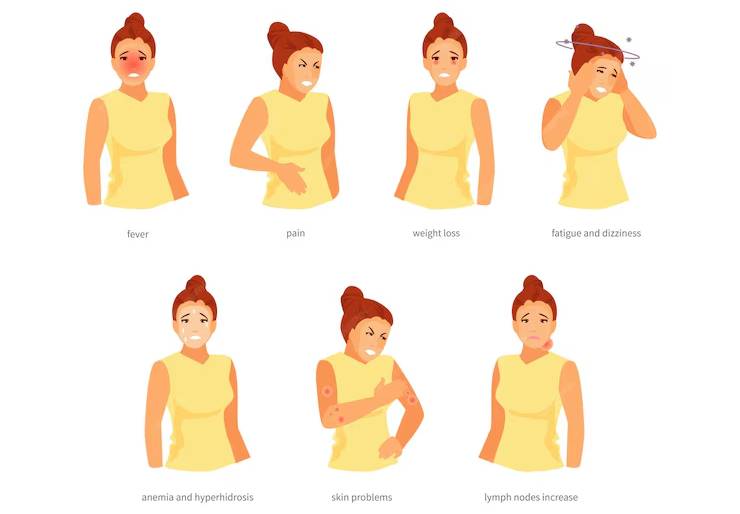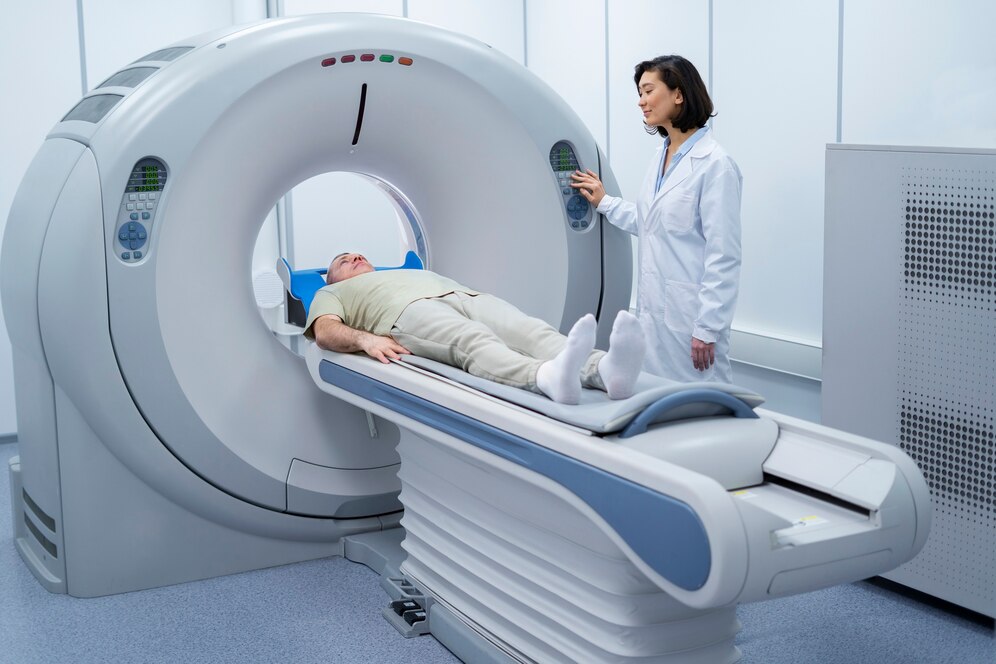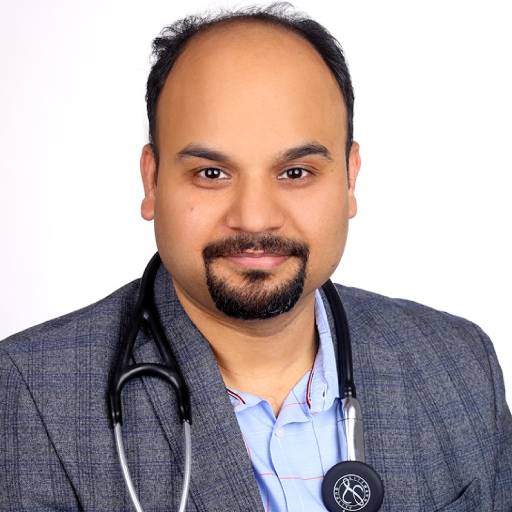Cancer is a disease where cells in the body grow uncontrollably. This abnormal growth can lead to the formation of masses called tumors, which can damage organs and tissues. Some tumors are benign, meaning they do not spread to other parts of the body. However, malignant tumors are cancerous and can invade nearby tissues. Malignant tumors can also metastasize, meaning cancer cells break away and travel through the bloodstream or lymphatic system to form new tumors in other parts of the body.
Cancer can start in any part of the body, and there are more than 100 types of cancer, each with its own characteristics and behaviors. Understanding the common symptoms and the diagnostic process is crucial for early detection. Early diagnosis improves the chances of successful treatment and recovery, as it allows doctors to address the disease before it progresses.
Recognizing Cancer Symptoms
Early detection of cancer greatly improves the chances of successful treatment. Recognizing cancer symptoms is the first step toward early diagnosis and effective intervention. Cancer can present itself in various ways, and being aware of the common symptoms can help individuals seek medical advice promptly.
Knowing what symptoms to look for is crucial. Here are some common cancer symptoms:
- Unexplained Weight Loss: Sudden, unintentional weight loss of 10 pounds or more can be an early sign of cancer, especially cancers of the pancreas, stomach, esophagus, or lung.
- Persistent Fatigue: Feeling extremely tired and not improving with rest can be an early sign of cancers like leukemia or colon and stomach cancers.
- Unusual Lumps or Swellings: New lumps or growths, particularly in the breast, testicle, or lymph nodes, can indicate cancer.
- Changes in Skin Appearance: New moles, changes in existing moles, or other skin changes like yellowing, darkening, or redness can be signs of skin cancer or other cancers.
- Persistent Cough or Hoarseness: A cough that doesn’t go away or hoarseness that persists could be symptoms of lung cancer or cancers of the larynx or thyroid.
- Changes in Bowel or Bladder Habits: Persistent constipation, diarrhea, or changes in stool size can indicate colon cancer, while blood in the urine or frequent urination can be signs of bladder or prostate cancer.
- Unexplained Bleeding or Bruising: Unexplained bleeding from the gums, nose, or unusual bruising can be symptoms of blood cancers like leukemia.
Early signs of cancer might be subtle but important. Always pay attention to changes in your body and consult a doctor if something feels off.

Understanding Cancer Diagnosis
Diagnosing cancer involves several critical steps and various medical tests. Understanding the diagnostic process can help demystify what can often be a daunting and complex journey. Accurate diagnosis is essential for determining the type, stage, and best treatment options for cancer.
Early and precise diagnosis increases the chances of successful treatment and can improve outcomes significantly. Here’s an overview of the methods used to diagnose cancer and why each is important.
- Imaging Tests: X-rays, CT scans, and MRIs help doctors see inside the body. These tests can show abnormal growths or tumors.
- Biopsy: This involves taking a small sample of tissue from the suspicious area. The tissue is then examined under a microscope to check for cancer cells.
- Blood Tests: Certain blood tests can detect cancer markers or abnormal cells.
Accurate diagnosis is crucial for effective treatment planning. Each method provides important information about the type and stage of cancer.

Benefits of Early Detection and Screening
Early detection of cancer can significantly impact outcomes, improving survival rates and treatment success. Screening methods play a crucial role in catching cancer at its earliest and most treatable stages. Here’s why early detection matters and how common screenings contribute to better health outcomes:
Key Screening Methods
- Mammograms: Essential for early detection of breast cancer, mammograms can detect abnormalities in breast tissue before symptoms appear.
- Colonoscopies: These screenings are vital for identifying and removing precancerous polyps in the colon, reducing the risk of developing colon cancer.
- Pap Smears: Crucial for detecting cervical cancer or precancerous conditions in the cervix, allowing for early intervention and treatment.
Benefits of Early Detection
Early detection offers several significant benefits:
- Higher Survival Rates: Detecting cancer early often leads to more successful treatment outcomes and higher chances of survival.
- More Treatment Options: Early-stage cancers generally offer more treatment options, including less invasive procedures and a better chance of complete recovery.
- Less Aggressive Treatments: Early detection may reduce the need for extensive surgeries, chemotherapy, or radiation therapy, leading to a better quality of life for patients.
- Better Quality of Life: Timely diagnosis and treatment can minimize cancer’s impact on daily life, allowing individuals to maintain their routines and activities.
By prioritizing regular screenings and early detection, individuals can proactively manage their health and reduce the risk of cancer-related complications. Early intervention not only saves lives but also improves overall well-being.

Real-Life Stories of Early Detection
Many people have survived cancer thanks to early detection. Here are a few inspiring examples:
- Breast Cancer: Early-stage breast cancer patients have a high survival rate. Regular mammograms can detect the disease early.
- Colorectal Cancer: Detecting colorectal cancer early can lead to the successful removal of polyps, preventing the disease from developing further.
- Prostate Cancer: Early detection through PSA tests and digital rectal exams has saved many lives.
Statistics show that the survival rate for many cancers is significantly higher when detected early. Early diagnosis and timely treatment can lead to successful outcomes.

Encouragement to Seek Medical Advice
Regular health check-ups are essential. They can help detect potential health issues before they become serious. If you notice any cancer symptoms, don’t ignore them. Seeking medical advice promptly can make a huge difference. Here’s why regular check-ups are important:
- Detect problems early when they are easier to treat
- Monitor existing health conditions
- Get vaccinations and preventive treatments
- Discuss any health concerns with a professional
Take Action Today
If you notice any cancer symptoms, don’t wait. Early detection can save lives. Book an appointment with Dr. Garima, an oncology specialist, today. Dr. Garima can provide expert advice, accurate diagnosis, and effective treatment options. Your health is important, and taking proactive steps can make all the difference.
Cancer awareness is crucial for early detection and successful treatment. By recognizing symptoms and understanding the diagnostic process, you can take charge of your health. Regular screenings and consultations with healthcare professionals are vital steps in cancer prevention and care. Remember, early action can save lives.

